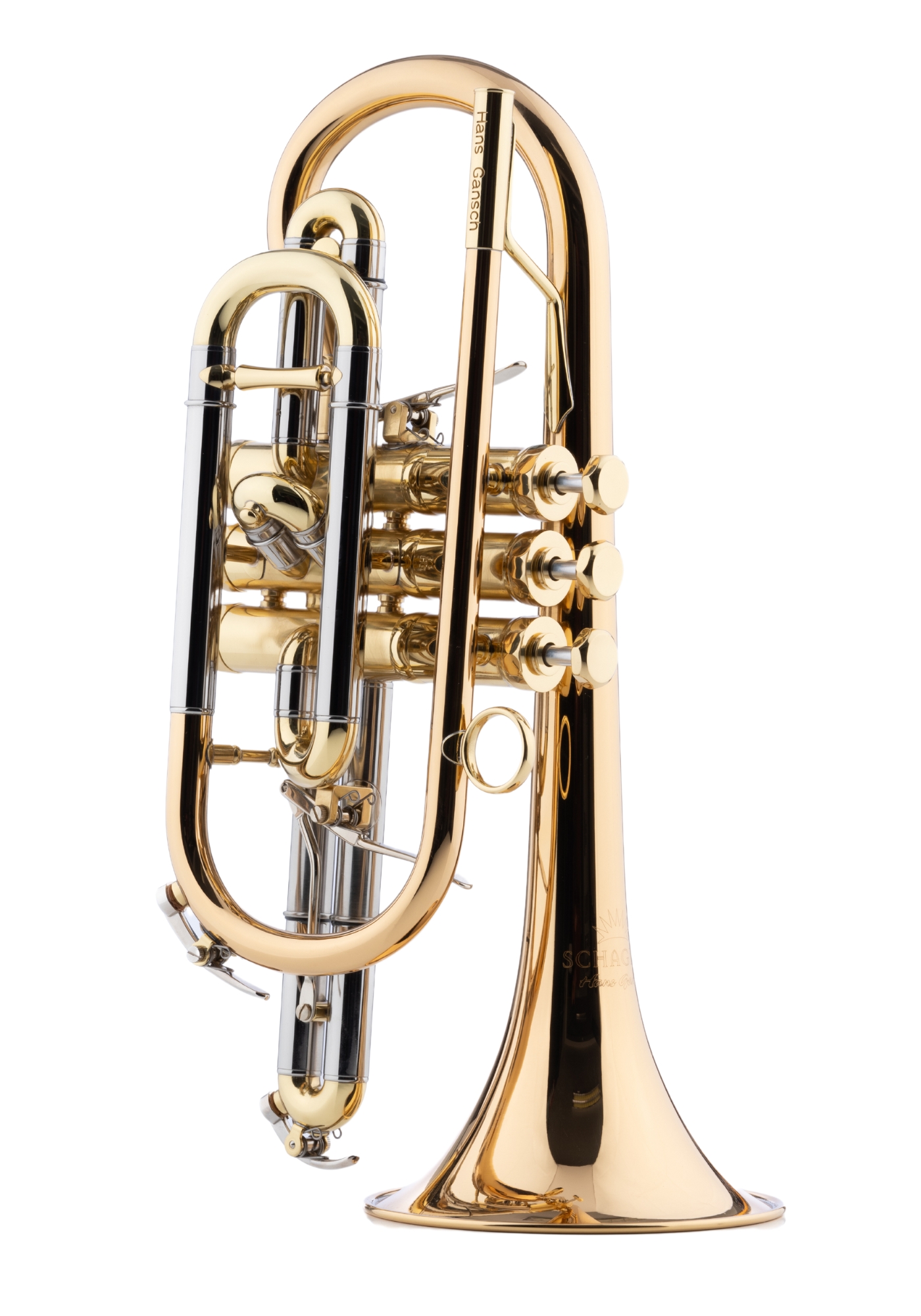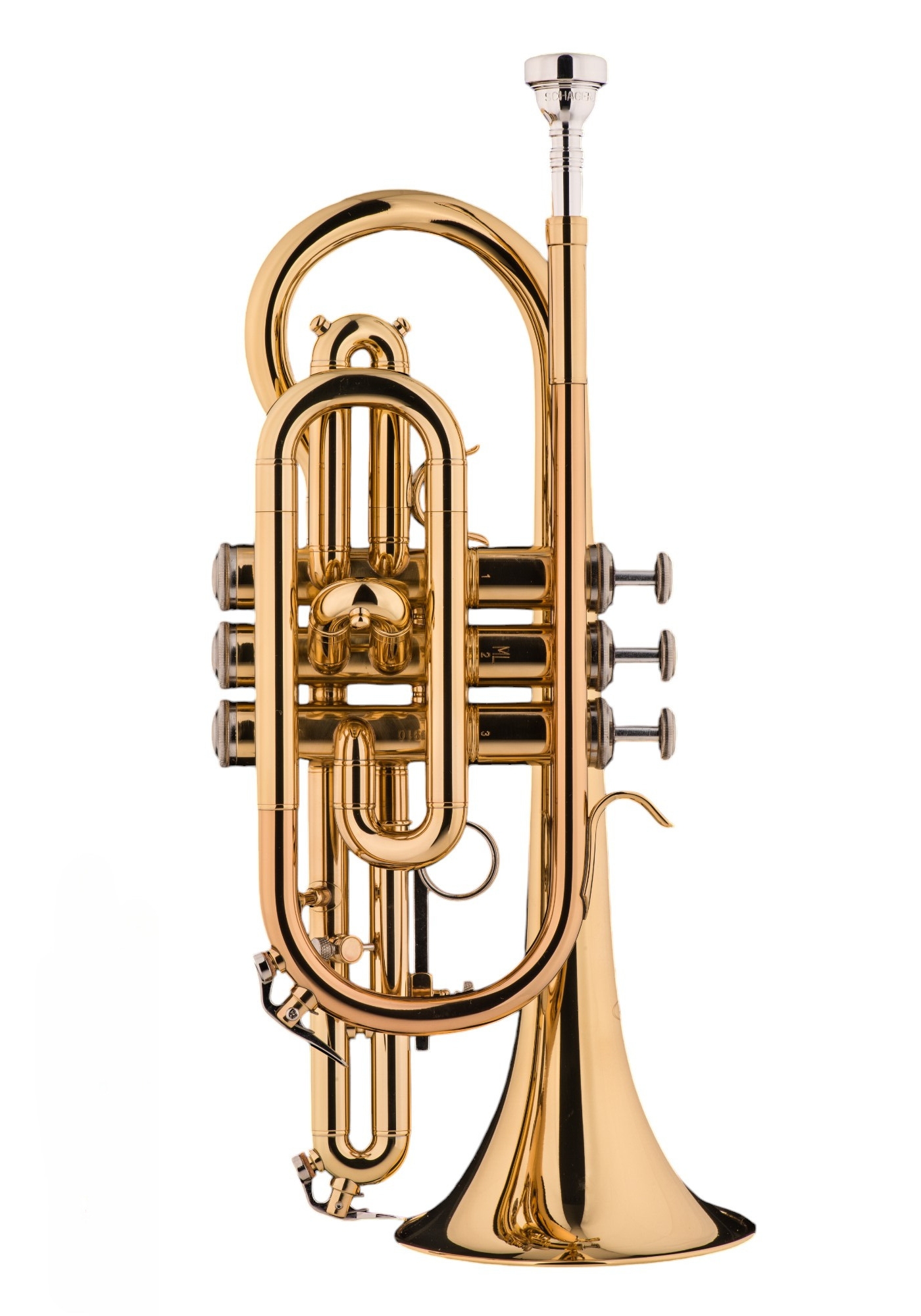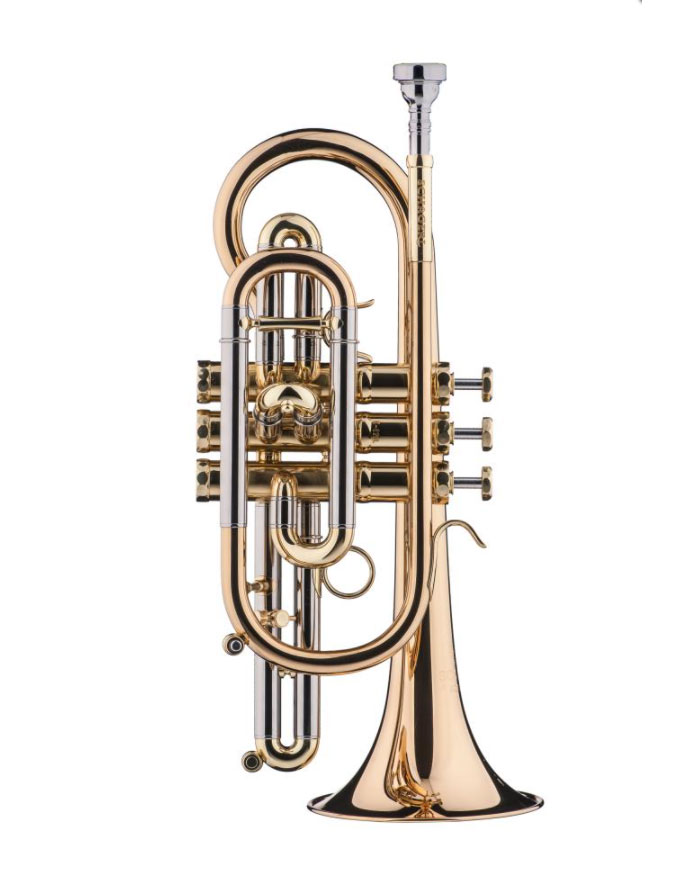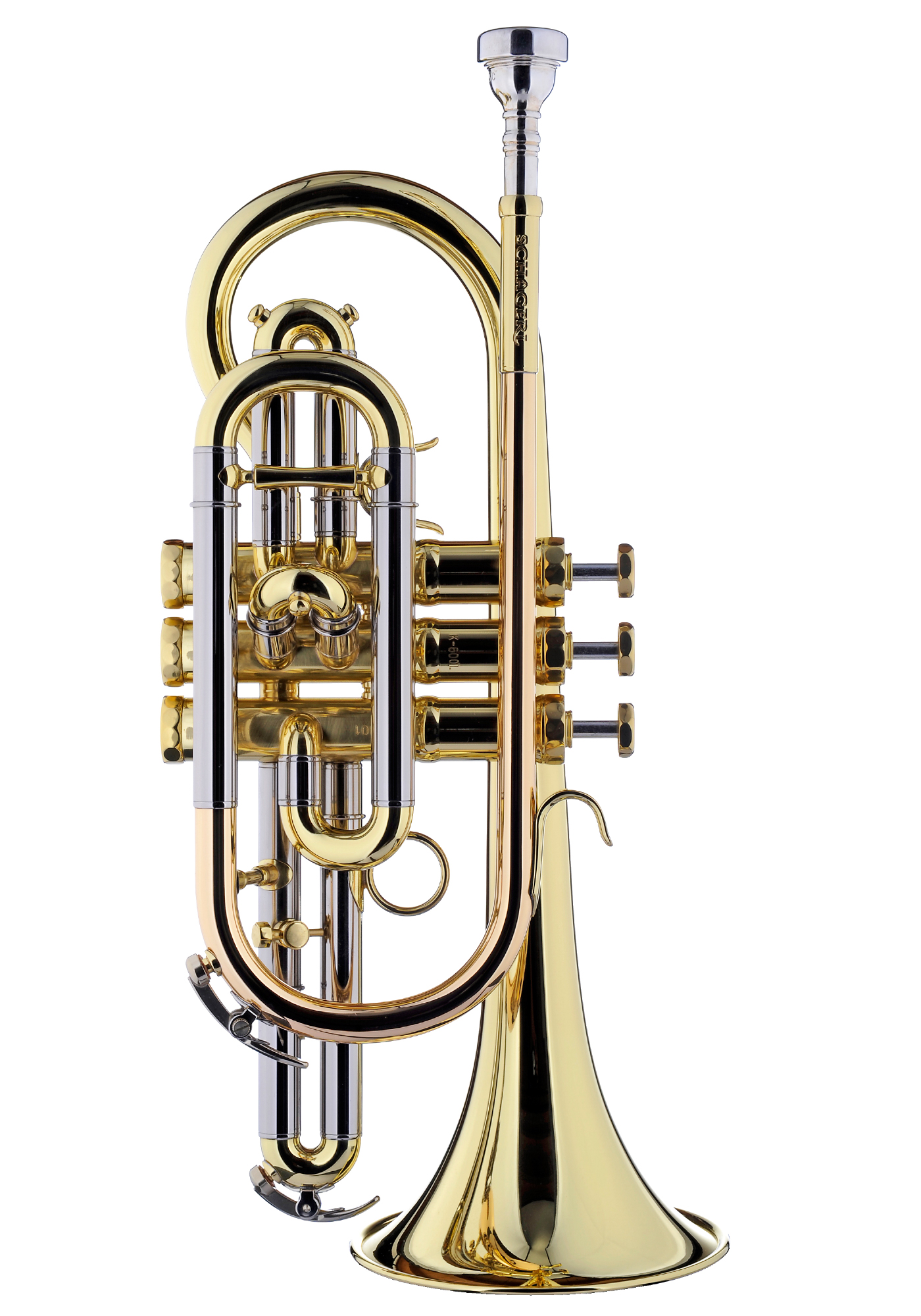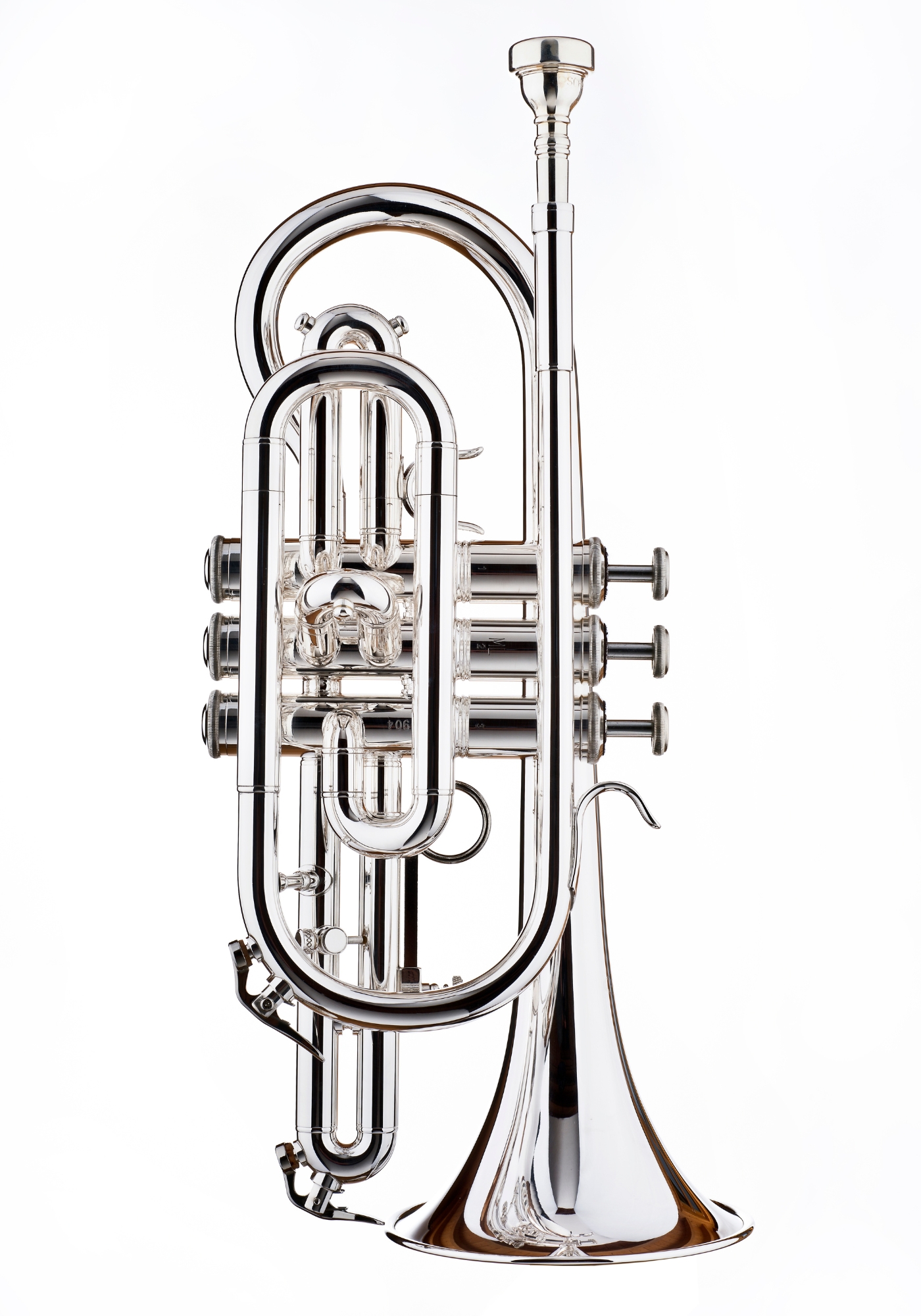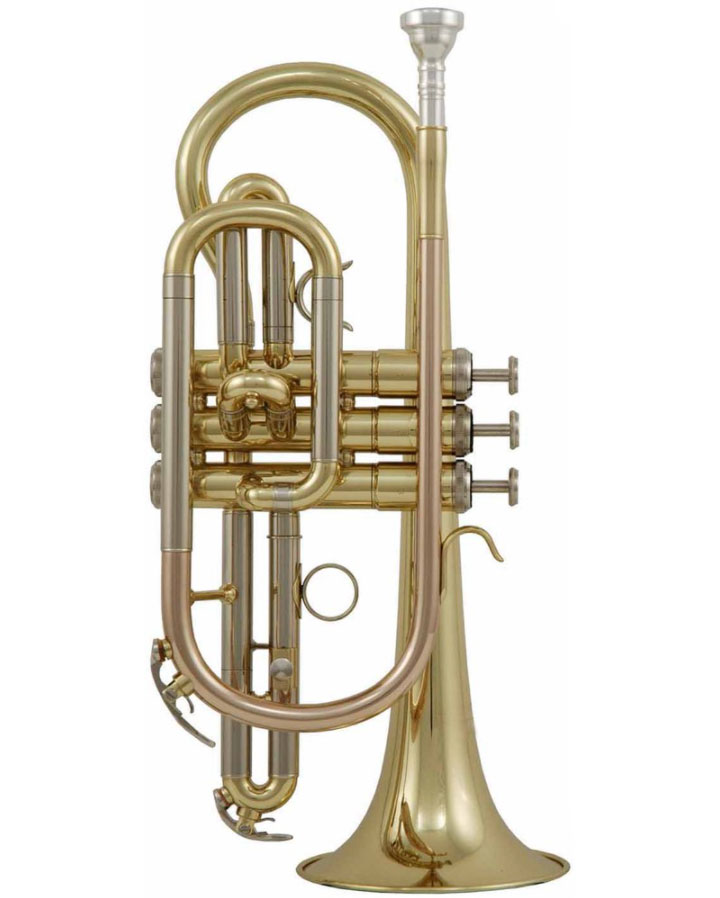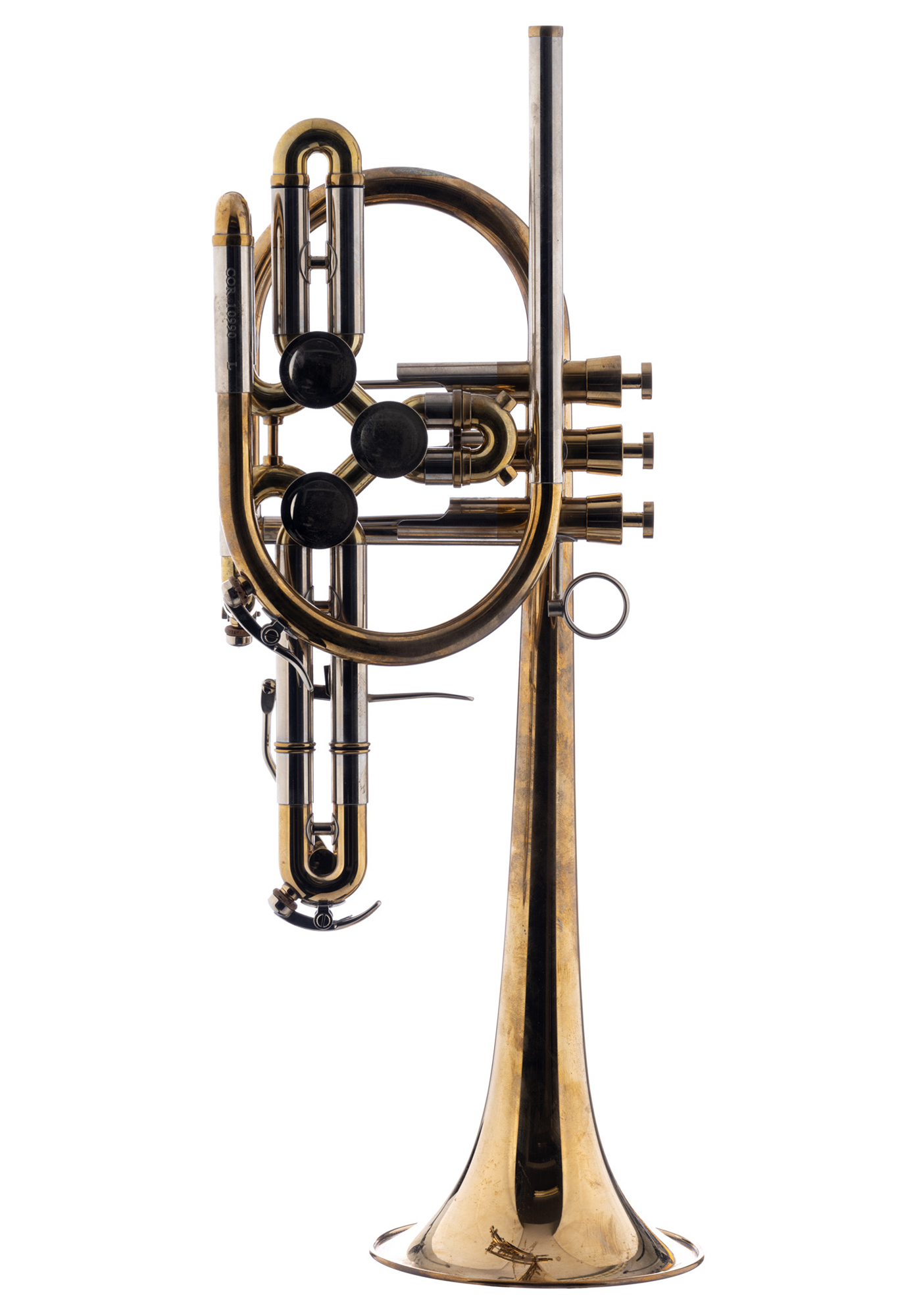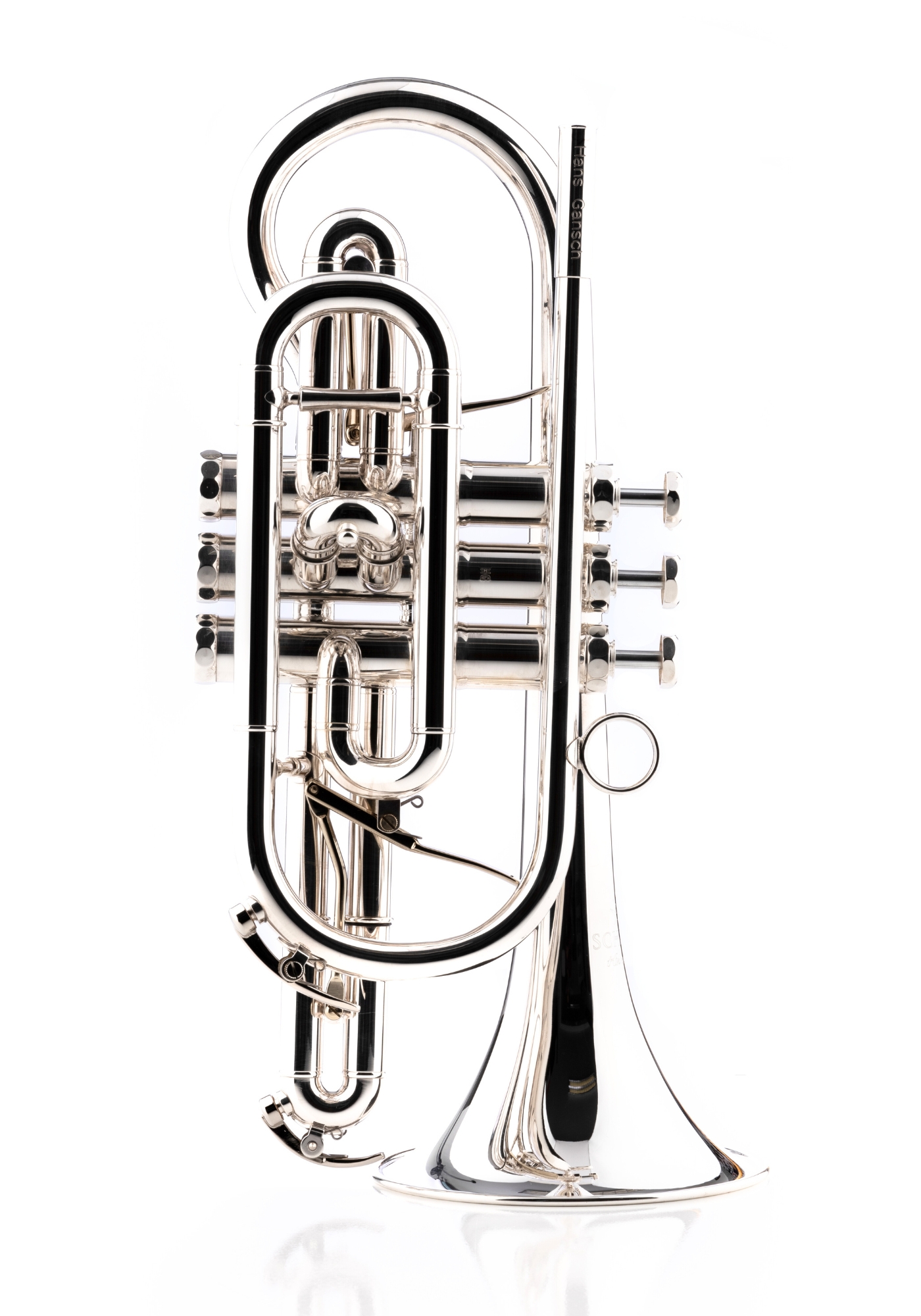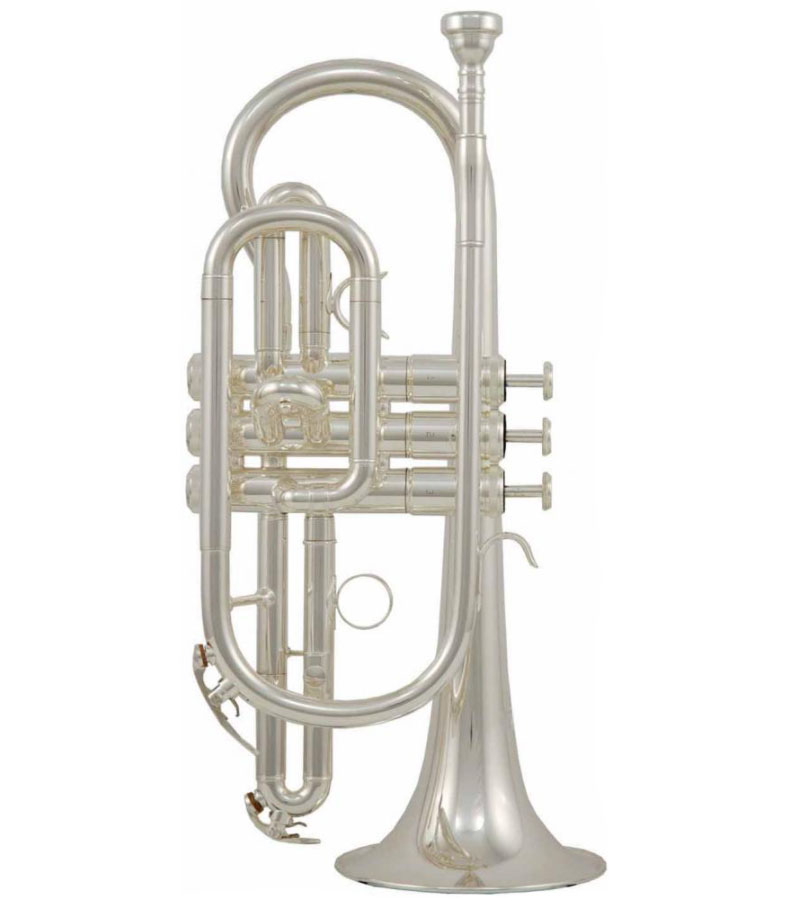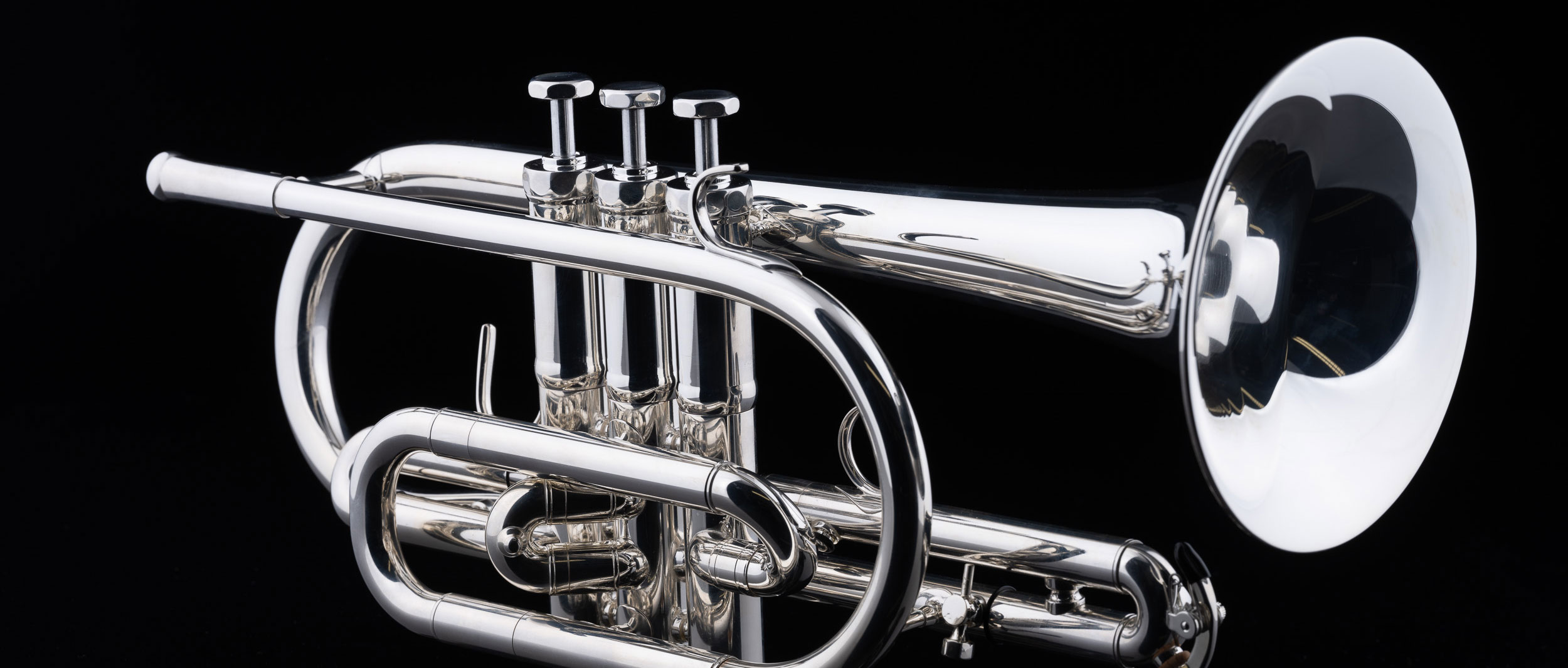
Cornet
Cornet - the versatile brass instrument for beginners and professionals
The cornet is a brass instrument that is often used in wind orchestras, brass bands and classical music. It is similar to the trumpet, but has a softer, warmer sound. This characteristic makes the cornet a popular choice for soloists and brass bands alike. Beginners in particular appreciate the cornet as it is easier to blow than the trumpet due to its conical tube shape.
Structure and sound of the cornet
Like most brass instruments, the cornet is made of brass. It has a compact design and is available in Bb and E flat tuning. The narrower mouthpiece and conical construction produce a softer, less penetrating sound than the trumpet, which is particularly effective in harmonic pieces or gentle melodies.
Application and possible uses
The cornet is often used in brass bands, military bands, but also in jazz and classical orchestras. Its variety of sounds makes it a flexible instrument that shines in both solo parts and accompaniments. Thanks to its relatively simple playing style and pleasant sound, it is also well suited for music lessons.
The most frequently asked questions about the cornet:
1. is the cornet suitable for beginners?
Yes, the cornet is ideal for beginners in particular, as it is easier to blow and therefore offers a quicker sense of achievement.
2. how do you look after a cornet properly?
Regular cleaning of the mouthpiece and valves as well as oiling the valves are important to prolong the life of the cornet.
3. what styles of music can be played with a cornet?
The cornet is very versatile and is suitable for classical music, jazz, brass bands and wind music.
4. how difficult is it to learn to play the cornet?
The cornet is comparatively easy to learn, especially in comparison to other brass instruments such as the trumpet. Due to the conical tube shape and the more compact mouthpiece, the cornet has an easier blowing behaviour, which enables beginners to achieve success more quickly.
5. How much does a good cornet cost?
The cost of a good cornet depends heavily on the brand and the level of playing. Beginner cornets are usually priced between 300 and 700 euros. These models offer solid quality and are ideal for beginners. For advanced or professional players, there are cornets up to 3,000 euros, which offer higher quality materials, a more precise response and a wider range.
Our tip for proper care:
1. cleaning the surface: Use a soft, dry cloth. For heavier soiling, there are mild paint sprays that care for the surface. Regular cleaning protects the surface from dirt and wear.
2. humidity control: After each playing session, it is important to drain the condensed water in the instrument, which is caused by breathing, and then air dry the instrument.
3. thorough rinsing: You should rinse the instrument with lukewarm water about every 8 weeks. This helps to loosen saliva residue and keep the internal spaces clean. A shower hose adapter, which is attached in place of the mouthpiece, can be very helpful here.
4. professional internal cleaning: The inside of your instrument should be chemically cleaned after 3 years at the latest to remove bacteria and calcification.
5. maintenance of the valves and slides: The valves should be oiled and the slides greased regularly. This daily maintenance ensures that everything runs smoothly.
Do you have any questions about care or do you need tips on special care products? Our team will be happy to advise you!
Gig bags and cases - The best storage for your cornet
The right storage for your cornet is crucial to keep the instrument in optimum condition and ensure safe transport. Whether you're travelling a lot or protecting your instrument at home, there are different ways to store and transport your cornet.
Here are the best options:
1. Gig bags:
Gig bags are the ideal choice for musicians who are often on the road. These bags are lightweight, flexible and can be carried comfortably like a rucksack. A big advantage of gig bags is their comfort and flexibility. However, they offer less protection than hard cases, which makes them more susceptible to knocks. Gig bags are ideal for short journeys or for musicians who often commute from gig to gig.
2. Hard cases: For maximum protection
Hard cases are the best choice if the protection of your cornet is paramount. These sturdy cases provide a solid frame that protects the instrument from knocks, scratches and environmental influences such as moisture. The robust material ensures that your instrument is safely stowed away even on longer journeys or on a plane. The disadvantage: Hard cases are heavier and less flexible than gig bags, but the additional protection is often worth the investment for valuable instruments.
3. combination solutions: Protection and convenience combined
For those who don't want to compromise, there are combination solutions that combine the best of both worlds. These cases combine the protection of a hard case with the carrying properties of a gig bag. They often have rucksack straps and thus offer convenient transport without neglecting protection. Such hybrid solutions are ideal for musicians who value both safety and mobility.
Buy Cornets at Schagerl:
Large selection: Schagerl offers a wide range of products, from cornets to an extensive range of accessories. This variety means that every musician can discover the right instrument for their style and requirements.
Expert advice: Schagerl employs experienced musicians and specially trained staff who offer professional and personalised advice. Whether beginner or professional, every customer receives the support they need to find the perfect instrument.
Best customer service: Customer service at Schagerl stands for reliability and commitment. In addition to personalised advice, customers also benefit from services such as repairs, maintenance and the purchase of accessories, which makes the entire purchasing process uncomplicated and pleasant.

